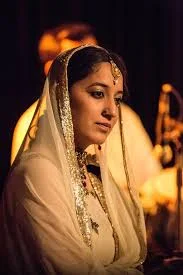By A Representative
The Vera List Center for Art and Politics, a Manhattan, New York-based non-profit research organization and public forum for art, culture and politics, has announced Avni Sethi as recipient of the 2020-2022 Jane Lombard Prize for Art and Social Justice for her project Conflictorium, a museum of conflict resolution in Ahmedabad, Gujarat.
Chaired by Candice Hopkins, the jury, which included Ivet Curlin, Natasha Ginwala, Carin Kuoni, Tamara Oyola-Santiago, and Shuddhabrata Sengupta, in its citation said, Conflictorium, initiated and directed by Sethi, a cultural organiser and kathak dancer, “is not a normal museum”, adding, it “reflects Sethi’s interdisciplinary, boundary-crossing practice and ethos.”
“Deeply embedded in the surrounding communities of Ahmedabad, Conflictorium is opening up histories of individual and collective trauma and holding space for challenging and difficult conversations”, the citation notes.
It adds, “The museum operates within a complicated political context and is an intellectual and ethical sanctuary in the region – particularly at a time when democracy and basic human rights, including religious freedoms, are under attack, in Gujarat, and elsewhere in the world.”
Asserting that Conflictorium “is rooted in the political dimensions of its immediate surroundings”, the citation says, “Sethi’s commitment to intimacy of scale and sincerity of intent has made it a place of gathering for everyone in the community, from schoolchildren, to elders, to neighbours.”
The citation continues, “By working across generations, the museum navigates polarized spaces and challenges historical amnesia. Under Sethi’s guidance, Conflictorium uses lyricism to recalibrate what has been frozen into silence, and it is through this sense of the political dimension of poetics, that it addresses the often unspeakable nature of trauma.”
The Jane Lombard Prize for Art and Social Justice is an awarded by the Vera Center to an artist or a group of artists in recognition of a particular project’s long-term impact, boldness, and artistic excellence. International in scope, it claims to constitute “a unique meeting of scholars and students, the general public, and globally significant artists.”
“The prize initiative unfolds over a two-year period and provides a multi-layered platform for artists as agents of social and political change. Key features of the prize initiative include the Jane Lombard Prize as well as the Jane Lombard Fellowships, bestowed on the prize finalists”, says the Vera Center website.
Chaired by Candice Hopkins, the jury, which included Ivet Curlin, Natasha Ginwala, Carin Kuoni, Tamara Oyola-Santiago, and Shuddhabrata Sengupta, in its citation said, Conflictorium, initiated and directed by Sethi, a cultural organiser and kathak dancer, “is not a normal museum”, adding, it “reflects Sethi’s interdisciplinary, boundary-crossing practice and ethos.”
“Deeply embedded in the surrounding communities of Ahmedabad, Conflictorium is opening up histories of individual and collective trauma and holding space for challenging and difficult conversations”, the citation notes.
It adds, “The museum operates within a complicated political context and is an intellectual and ethical sanctuary in the region – particularly at a time when democracy and basic human rights, including religious freedoms, are under attack, in Gujarat, and elsewhere in the world.”
Asserting that Conflictorium “is rooted in the political dimensions of its immediate surroundings”, the citation says, “Sethi’s commitment to intimacy of scale and sincerity of intent has made it a place of gathering for everyone in the community, from schoolchildren, to elders, to neighbours.”
The citation continues, “By working across generations, the museum navigates polarized spaces and challenges historical amnesia. Under Sethi’s guidance, Conflictorium uses lyricism to recalibrate what has been frozen into silence, and it is through this sense of the political dimension of poetics, that it addresses the often unspeakable nature of trauma.”
The Jane Lombard Prize for Art and Social Justice is an awarded by the Vera Center to an artist or a group of artists in recognition of a particular project’s long-term impact, boldness, and artistic excellence. International in scope, it claims to constitute “a unique meeting of scholars and students, the general public, and globally significant artists.”
“The prize initiative unfolds over a two-year period and provides a multi-layered platform for artists as agents of social and political change. Key features of the prize initiative include the Jane Lombard Prize as well as the Jane Lombard Fellowships, bestowed on the prize finalists”, says the Vera Center website.



Comments